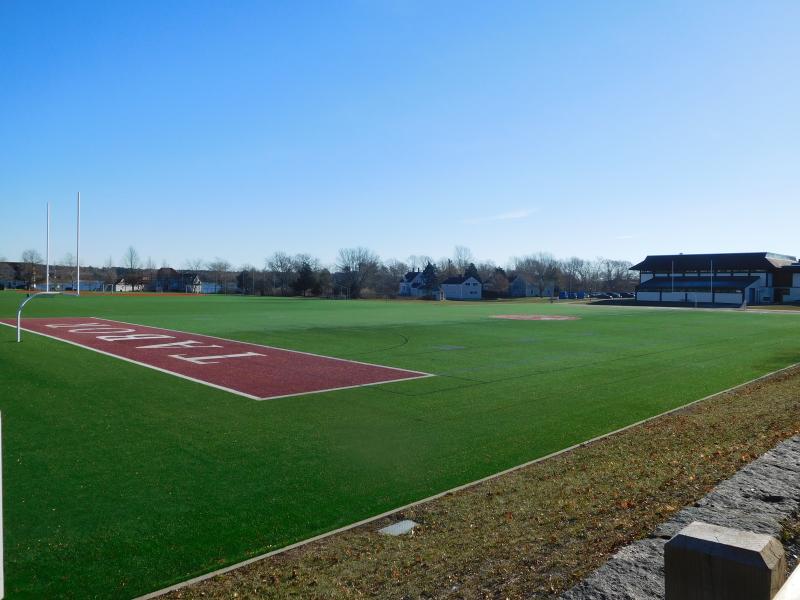Tabor asks court to allow athletic field lights
MARION — Tabor Academy has filed suit against the Zoning Board of Appeals, asking Plymouth Superior Court to allow construction of five 90-foot lights on its main athletic field.
In legal documents filed Nov. 28, Tabor asserts that the zoning board denied the special permit based on opinions rather than facts.
Tabor first sought to construct on its main athletic field bounded by Front Street, Spring Street and Ryder lane in 2011, under previous Head of School Jay Stroud.
Though that request was eventually dropped amid protests from neighbors and town officials, the school submitted similar proposal in May of this year. Hearings on the permit application were held monthly from June to October, with the zoning board unanimously voting to deny the permit in October.
Any structure higher than 65 feet requires a special permit to construct. Tabor Academy requested 90-foot poles for 24 LED lights, asserting that tests showed that the taller poles minimize the amount of light that would affect nearby houses.
In its special permit application, Tabor specified that it would use the lights for six to eight evening games and one or two community events in the spring and fall, and for late afternoon practices in November. The academy promised that the lights would be out by 9 p.m.
“We are eager to move forward with field lights and feel strongly that doing so would enhance the experiences of our students,” said current Head of School John Quirk. “We also believe we can more than adequately address the concerns we heard during the initial process and in meeting with our neighbors.”
In denying the permit, the Zoning Board of Appeals stated that “The impacts of the athletic field use on the surrounding neighborhood will be substantially increased, both quantitatively and qualitatively,” adding that the illuminated field, “alters the character of the neighborhood.”
The board concluded that “the averse effects of the proposed used outweigh any beneficial impacts to the Town or the neighborhood.”
Though most of the poles met the 110 foot setback requirement, one pole, slated for the middle of the field near Spring Street, did not. The board stated that this pole would create “a safety hazard in the event of collapse.”
In court documents, Tabor responded that “The board’s finding that the installation of 90-foot lighting poles . . . will negatively impact the character of the neighborhood is speculative and unsupported by any evidence that was before the Board. . . . The 90-foot monopoles to be erected by Tabor are designed to withstand wind velocities in excess of 100 mph to prevent them from toppling and endangering adjacent structures.”
In appealing the board’s reject of the lighting, Quirk said he wants to balance Tabor’s needs with the community’s needs.
“The special permit process allows an avenue for appeal, and so it seemed sensible to pursue the opportunity to further our hopes, and perhaps to come to an agreement that balances both Tabor’s aspirations and the concerns of our local community,” Quirk explained
Building Inspector Scott Shippey, who serves as Marion’s zoning officer, and zoning board Chair Marc LeBlanc had no comment on the appeal.
As a next step, both parties must file the appropriate paperwork with the court by the end of February. The case is expected to be resolved by the end of November 2020.












